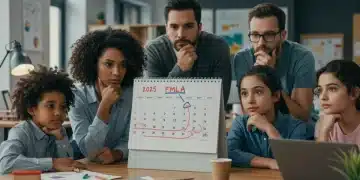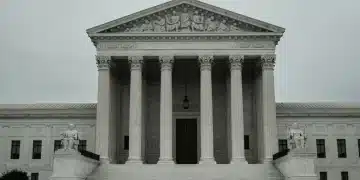Down legal rights protection: why it matters for you

Understanding how to ensure your legal rights are protected involves documenting violations, knowing your rights, seeking legal advice, and engaging with advocacy groups.
Down legal rights protection is something we often take for granted, yet it plays a vital role in our everyday lives. Have you ever thought about how it shapes your freedoms and security? Let’s dive into why this topic is so important.
Understanding legal rights protection
Understanding legal rights protection is essential for everyone. It helps safeguard your interests and ensures fair treatment under the law. Let’s explore what this means in practical terms.
What is Legal Rights Protection?
Legal rights protection refers to the measures and legislation that uphold an individual’s rights within the legal system. It acts as a shield against injustice and discrimination. Knowing your legal rights can empower you to take action when necessary.
Key Components of Legal Rights Protection
- Access to legal representation
- Protection against unfair treatment
- Enforcement of laws
- Awareness of individual rights
These components work together to create a system where citizens can feel secure. When individuals are aware of their rights, they can better defend themselves. This is crucial in cases of disputes or legal challenges.
Legal rights protection also involves community resources. Organizations and legal aid services offer assistance and guidance. These resources ensure that the vulnerable, who may not afford legal services, receive the help they need.
Why is Legal Rights Protection Important?
Without legal rights protection, society may become chaotic. People may face injustices without the means to fight back. The law must provide support for those wronged or marginalized. A strong legal framework not only serves individuals but strengthens the fabric of society as a whole.
Challenges in Legal Rights Protection
Despite its importance, there are challenges in ensuring effective legal rights protection. Some of these include:
- Lack of awareness among citizens
- Barriers to accessing legal services
- Inadequate legal representation for certain populations
Addressing these challenges is crucial for establishing a just society. Increased education and advocacy efforts can help bridge these gaps.
Importance of down legal rights protection
The importance of down legal rights protection cannot be overstated. It serves as a foundational pillar for justice and equality in society. When people understand their rights, they can better navigate challenges they may encounter.
Ensuring Fair Treatment
One vital aspect of legal rights protection is that it ensures fair treatment for everyone. It prevents discrimination based on race, gender, or status. When individuals know their rights, they are more likely to stand up against injustice.
Empowering Individuals
Strong legal rights protection empowers individuals. It gives them the confidence to speak out and engage in their communities. When people are aware of their legal rights, they can seek help and advocate for themselves. This empowerment often leads to better outcomes in legal disputes and negotiations.
Building Stronger Communities
A society that embraces legal rights protection fosters trust and cooperation among its members. When individuals feel protected, they are likely to participate in community initiatives. This engagement helps build stronger, more united communities.
Moreover, legal rights protection encourages people to abide by the law. When individuals know their rights, they recognize the importance of respecting others’ rights as well. This mutual respect is crucial for maintaining order and harmony within society.
Facilitating Access to Justice
Legal rights protection plays a critical role in facilitating access to justice. It ensures that legal resources are available to those who need them. Organizations that provide legal aid are essential in this regard. They help bridge the gap for individuals who might otherwise be unable to afford legal representation.
Challenges to Legal Rights Protection
Despite its significance, there are challenges to achieving effective legal rights protection. Many people remain unaware of their rights, which creates vulnerabilities. Additionally, systemic barriers can prevent access to necessary legal resources.
- Lack of education about legal rights
- Insufficient legal aid services
- Poverty and socioeconomic barriers
- Inconsistent enforcement of laws
Addressing these challenges is essential to enhance the effectiveness of legal rights protection and ensure that justice is accessible to all.
How to ensure your rights are protected

Knowing how to ensure your rights are protected is crucial for everyone. Understanding the steps you can take can help safeguard your interests and maintain fairness in various situations.
Educate Yourself About Your Rights
The first step in protecting your rights is to educate yourself. Become familiar with the laws that apply to you. Various resources are available, including websites, workshops, and community groups. When you know your rights, you are better equipped to assert them.
Seek Legal Assistance
If you ever feel your rights have been violated, seeking legal assistance can be a valuable step. A lawyer can provide guidance and help navigate the legal system. It’s important to consult someone who understands the specifics of your situation. This can make a significant difference in how your case is handled.
Document Everything
When you believe your rights are at risk, documentation is key. Keep records of events, communications, and any relevant documents. This evidence can be essential if you need to take legal action. Clear and accurate documentation helps support your claims.
Join Advocacy Groups
Joining advocacy groups can strengthen your position. These organizations work toward protecting individual rights and often provide useful resources. They can assist in legal matters and offer education on how to safeguard your rights.
- Attend community meetings
- Participate in workshops
- Access legal resources
- Network with like-minded individuals
By participating in these groups, you not only learn about your rights but also connect with others who share similar goals, creating a network of support.
Be Proactive
Taking proactive steps is essential in ensuring that your rights are protected. Being assertive about your rights promotes awareness and can prevent violations. If you notice something that feels wrong, speak up. Remember, defending your rights is a crucial part of being an active citizen.
In addition, staying informed about changes in laws can keep you prepared. Legal protections can evolve, and being knowledgeable about these changes will help you respond effectively.
Common challenges in legal rights protection
Identifying the common challenges in legal rights protection is key to understanding how to improve access to justice. Many individuals face significant barriers that may prevent them from asserting their rights effectively.
Lack of Awareness
One major challenge is a lack of awareness about legal rights. Many people do not know what rights they have or how to defend them. This ignorance can lead to violations without a person even realizing it. Education about rights is essential to empower individuals.
Access to Legal Resources
Another obstacle is access to legal resources. Many individuals cannot afford legal representation. This financial barrier limits their ability to seek help when their rights are infringed. Pro bono services and legal aid organizations play a vital role in helping bridge this gap.
Cultural and Language Barriers
In diverse communities, cultural and language barriers can hinder access to legal rights protection. Individuals who do not speak the dominant language may struggle to understand legal processes or communicate their needs effectively. This can result in missed opportunities to defend their rights.
Systemic Inequities
Systemic inequities in the legal system create additional challenges. Marginalized groups often face discrimination that affects their ability to access justice. These systemic issues can undermine the effectiveness of legal rights protection.
- Discrimination based on race, gender, or socioeconomic status
- Inconsistent enforcement of laws
- Limited availability of resources in certain areas
- Overloaded court systems
Addressing these systemic inequities is critical for improving legal rights protection for all individuals. Collaboration among community organizations, legal professionals, and government agencies can help create a more equitable system.
Emotional and Psychological Barriers
Emotional and psychological barriers also play a role. Individuals may feel intimidated by the legal system or fearful of repercussions for asserting their rights. This fear can act as a significant deterrent to seeking help.
Overcoming these challenges requires education, advocacy, and community support. Only through collective efforts can we enhance awareness and improve access to legal rights protection for everyone.
Steps to take if your rights are violated
Understanding the steps to take if your rights are violated is essential for everyone. Knowing how to respond can help you effectively assert your rights and seek justice.
Stay Calm and Assess the Situation
When you feel your rights have been violated, the first step is to stay calm. Take a moment to assess the situation clearly. Understanding what happened can help you determine the best course of action.
Document the Violation
Documentation is crucial. Write down every detail about the incident, including dates, times, locations, and the names of those involved. Collect any evidence, such as photographs or written communication. This information will be invaluable if you need to take further action.
Know Your Rights
Familiarize yourself with the specific rights relevant to your situation. Knowing your rights empowers you to advocate for yourself. Review legal resources or consult with advocacy groups to gain a better understanding of your rights.
Seek Legal Advice
If the situation does not resolve easily, it might be time to seek legal advice. Contact a lawyer who specializes in civil rights or relevant legal issues. They can provide guidance on how to proceed and help you understand your options.
- Discuss your situation in detail
- Ask about possible outcomes
- Inquire about the process for filing a complaint
Having professional legal support can equip you with the necessary knowledge to navigate the complexities of the situation.
File a Formal Complaint
If a violation has occurred, consider filing a formal complaint. This process typically involves submitting documentation to the appropriate authority. Complaints can be directed to oversight organizations, employer HR departments, or government agencies.
Reach Out to Advocacy Groups
Connecting with advocacy groups can also be beneficial. These organizations often provide support, resources, and guidance in dealing with legal violations. They can help amplify your voice and ensure your rights are taken seriously.
Engaging with others who have faced similar situations can also provide emotional support. You are not alone in this struggle, and there are individuals and organizations ready to help.
In summary, understanding your rights is crucial for your safety and well-being. When violations occur, knowing how to take action can make a significant difference. Always stay calm, document what happened, and seek legal help if necessary. Engaging with community resources and advocacy groups can provide support and guidance. By taking these steps, you empower yourself and contribute to a society where everyone’s rights are respected.
FAQ – Common Questions About Legal Rights Protection
What should I do first if I believe my rights have been violated?
Stay calm and document every detail of the incident as soon as possible.
How can I educate myself about my legal rights?
You can read legal resources, attend workshops, or consult advocacy groups for information.
When should I seek legal help?
You should seek legal help if the violation is serious or if you feel overwhelmed navigating the legal process.
What role do advocacy groups play in protecting my rights?
Advocacy groups can provide support, resources, and guidance on how to assert your rights effectively.





